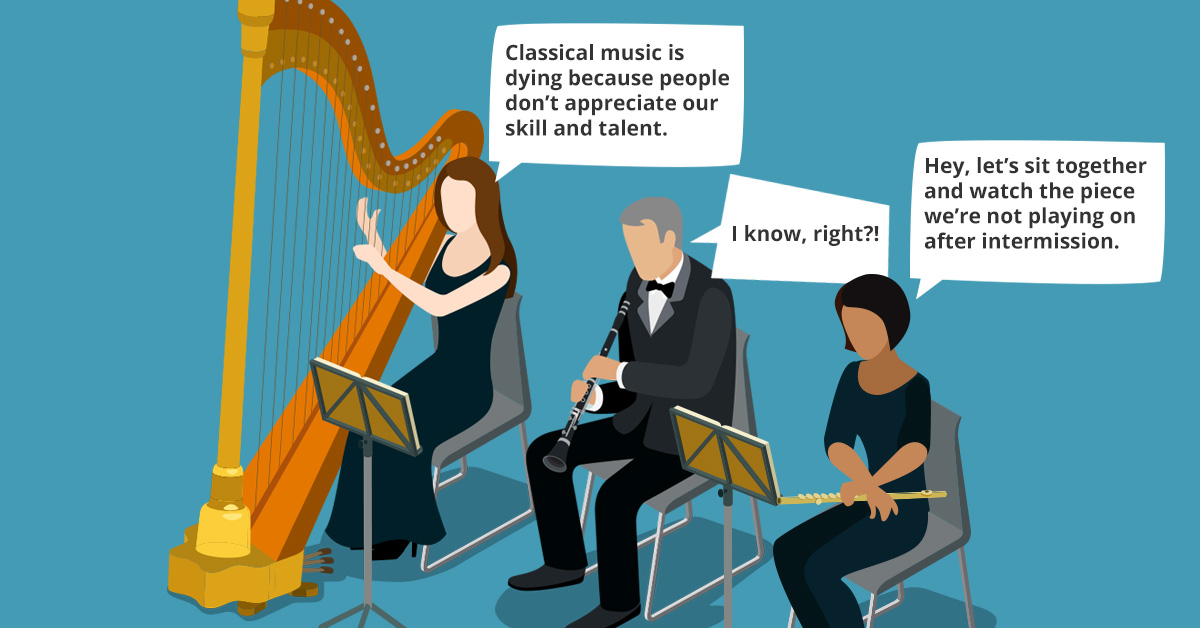Over the weekend, the New York Post published an article by Isabel Vincent and Melissa Klein that reports on a Lake Forest, IL police report that accuses conductor and Metropolitan Opera (Met) Music Director James Levine of alleged child molestation. A host of additional outlets followed up with their own accounts in the wake of the NY Post’s bombshell article.
Update: The Met has formally suspended Levine and released additional details of their internal investigation. The 12/3/17 edition of the New York Times published an article by Michael Cooper with additional details. As of the time this update was published there are no details on whether the Met’s investigation will include whether or not any members of its executive leadership received allegations about Levine prior to the two instances currently acknowledged (1979 and 2016).
Within the flash flood of coverage, a few items caught my attention:
- The Met went into full court press PR crisis mode and wasted no time announcing they planned on launching their own investigation into allegations.
- A notion that even though rumors of Levine’s alleged sexual misconduct are widely known, there somehow should have been more voices speaking up over the years that didn’t.
An excellent example of the second point comes via an opinion piece in Forbes.com by Jens F. Laurson, who provides the following observation:
If the latter is the case, much of the blame rests on us: On everyone who didn’t ask the tough question facing a rumor. On everyone who knew something – but didn’t intervene. On everyone who allowed victims to think that this was sort-of normal and par for the course. And on everyone who allowed perpetrators to never have to hear a proper, definite “No”.
The 12/2/17 edition of the New York Times published an article by Michael Cooper that provides one of the best overviews of the first point.
Peter Gelb, the general manager of the Met, said Saturday night that the company would begin an investigation of Mr. Levine.
“This first came to the Met’s attention when the Illinois police investigation was opened in October of 2016,” Mr. Gelb said. “At the time Jim said that the charges were completely false, and we didn’t hear anything further from the police. We need to determine if these charges are true and, if they are, take appropriate action. We will now be conducting our own investigation with outside resources.”
When those in positions of power and authority feel comfortable enough to inflict the sort of sexual misconduct Levine allegedly committed, the heart of the problem is clear. By positions of power, I mean not only the individual artists but the executive boards, administrative executives, artist’s managers, and the host of connected professionals who stand to lose when allegations are confirmed.
Each of those power position stakeholders need to be held accountable for creating an environment that discourages abuse while simultaneously creating procedures that provide equal protections for resolving sexual violence complaints.
It’s one thing to acknowledge that an environment which permits these sorts of abuses to happen is something in which we all share culpability, but it’s something entirely different when talking about how to make substantive changes.
This is where the first item above comes into the picture.
Given how long rumors about Levine’s alleged behavior have persisted combined with the length of time he spent at the Met, they are the last people who should be running any sort of investigation at this juncture. In a field as hyper-competitive as orchestras and operas, it’s all too easy to turn a blind eye or outright discourage complaints.
Individuals in those positions of power have the resources (both financial and legal) to discourage accusations from emerging; it’s the exact opposite of a culture which should exist.
Perhaps the best way to describe the current culture is: might makes right…until it’s so big we can’t ignore it.
For now, Levine’s fate is intertwined with ongoing law enforcement investigations, but the large ensemble classical music field needs to begin working toward a vastly improved state of self-regulation that protects those suffering the consequences of the might makes right ethos.
If, by this time next year, we fail to see this become a hallmark topic with actionable results that protect those who are vulnerable from being taken advantage of, it’s time to consider government oversight in the form of an arts focused version of Title IX (the federal law that prohibits sexual discrimination in educational institutions that receive federal funding).


